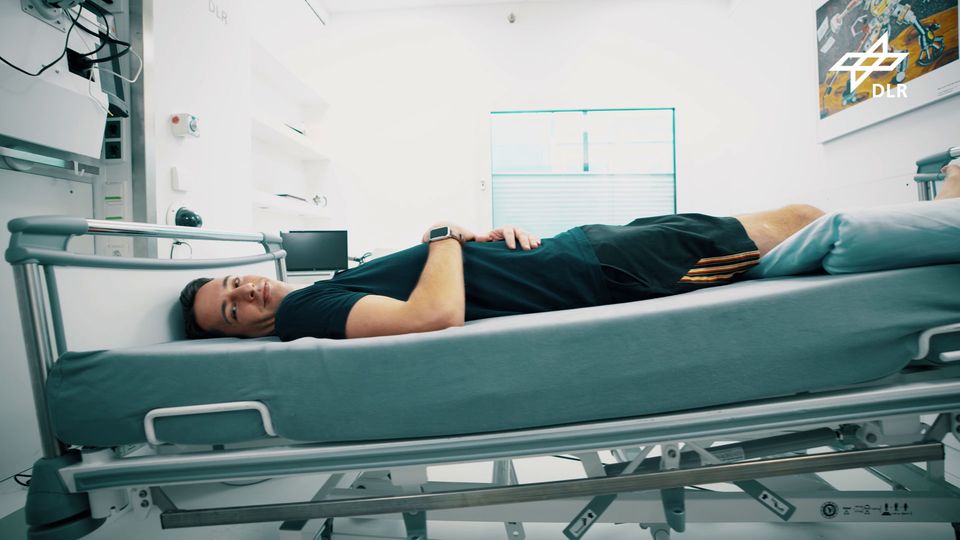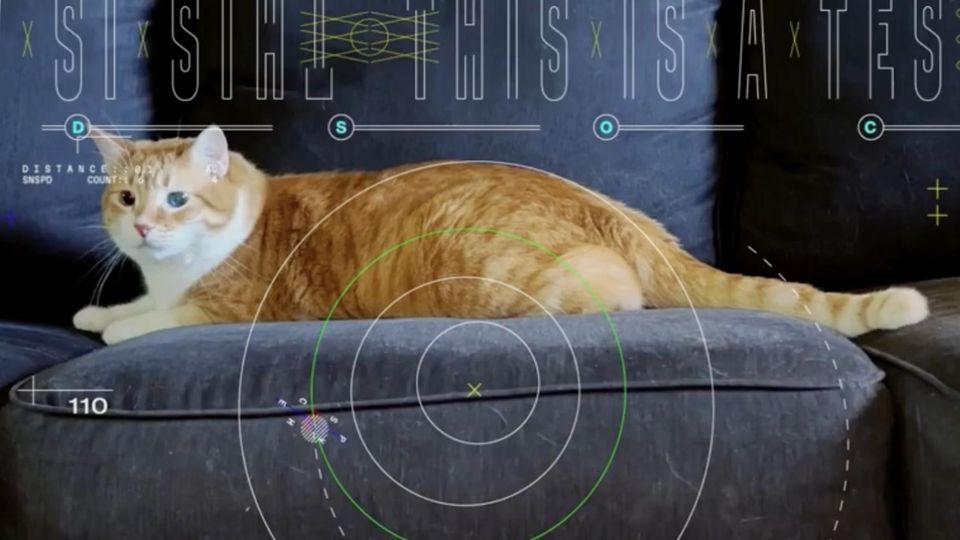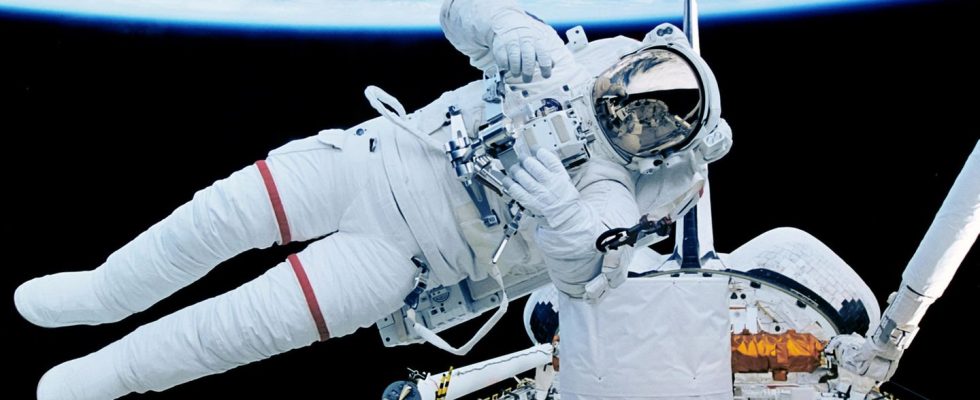Space study
Would you just lie in bed for two months for 18,000 euros?
The study participants won’t go into space – but at least they can provide important insights for real astronauts
© Imago Images
The German Aerospace Center in Cologne is looking for test subjects who will take bed rest in the service of science – for weeks. However, the physical consequences can be serious.
Do female astronauts stumble on their first step on Mars? A study by the German Aerospace Center (DLR) is intended to find out. The researchers are looking for twelve people to take part in a 60-day bed rest study Cologne take part. The experiment in collaboration with NASA simulates the long journey in weightlessness to another planet. The researchers want to find out why astronauts have coordination problems – and what helps.
The test subjects move to a medical research facility for 88 days. They have to lie down for sixty days with their heads six degrees lower than their legs. In this way, half a liter of fluid rises to the upper half of the body, writes the DLR, almost exactly like in space. In addition to a swollen face, the “puffy face”, the pressure in the head changes.
This leads to vision restrictions and other neurological problems. “Dizziness, stumbling, lack of coordination. This can endanger a mission,” writes the DLR, for example if there is a stone on the moon or Mars that the astronaut has to step over. The study participants will therefore be tested to see whether electrical impulses, strength training or electrical muscle stimulation help against the gravity hangover. Similar studies involving months of bed rest at a six-degree angle have been carried out in space research for more than ten years.

No steps for this subject – but a step for space research
© DLR
Bedpan instead of space
In a previous stage of the Cologne study, the effects of negative pressure chambers and cycling were tested – also while lying down. In bed, the test subjects are equipped with a bedpan and diaper pad. Showering was also done while lying down. There is hospital food to eat, for example jam bread and tea for breakfast. A test subject who works as a geriatric nurse reported that she wanted to try out how her patients felt: “My own limits are definitely more in my head.”
Anyone who wants to take part in the study must be between 1.53 and 1.90 meters tall, be healthy and must not smoke. Participants must have a BMI of 18 to 30 and speak German well. For this, the DLR will pay an expense allowance of 18,000 euros.

But the study is probably not without physical consequences. Due to inactivity, muscles and bones break down, the sense of balance is confused and the cardiovascular system changes, writes the DLR. In a similar bed rest study by the French Institute for Space Medicine, researchers reported a decrease in bone density and difficulty standing. A bed rest study from the University of Bath showed an increased risk of type 2 diabetes.
A trip into space can have serious consequences for the human body. The effects have been best studied NASA astronaut Scott Kelly. He traveled to the ISS space station for 340 days while his twin brother remained on Earth. At first he recovered quickly. “I came back from space younger than my twin,” Kelly told the BBC. However, researchers found changes in his intestinal bacteria, damage to his DNA and a reduction in his cognitive abilities.
Sources: German Aerospace Center, BBC


